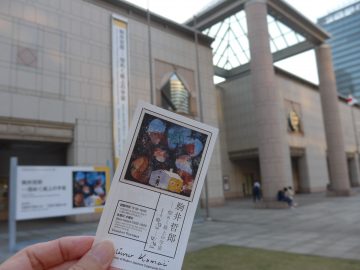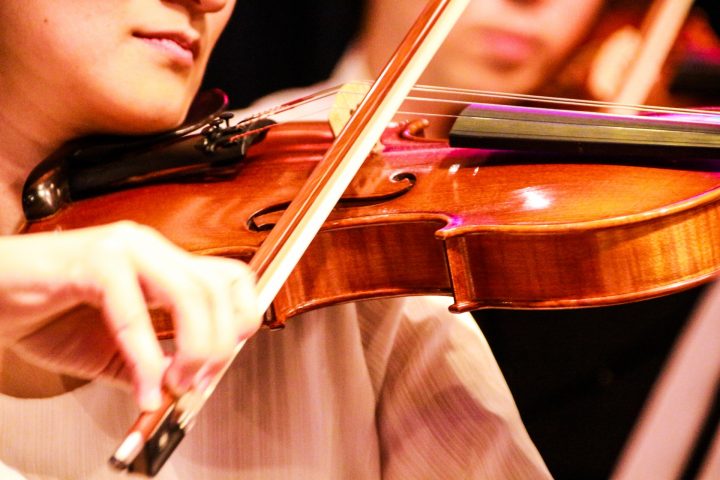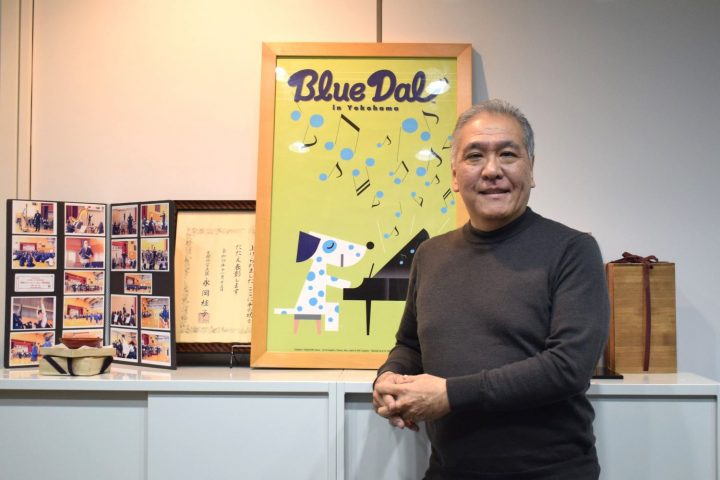It's a shame you don't know about it!
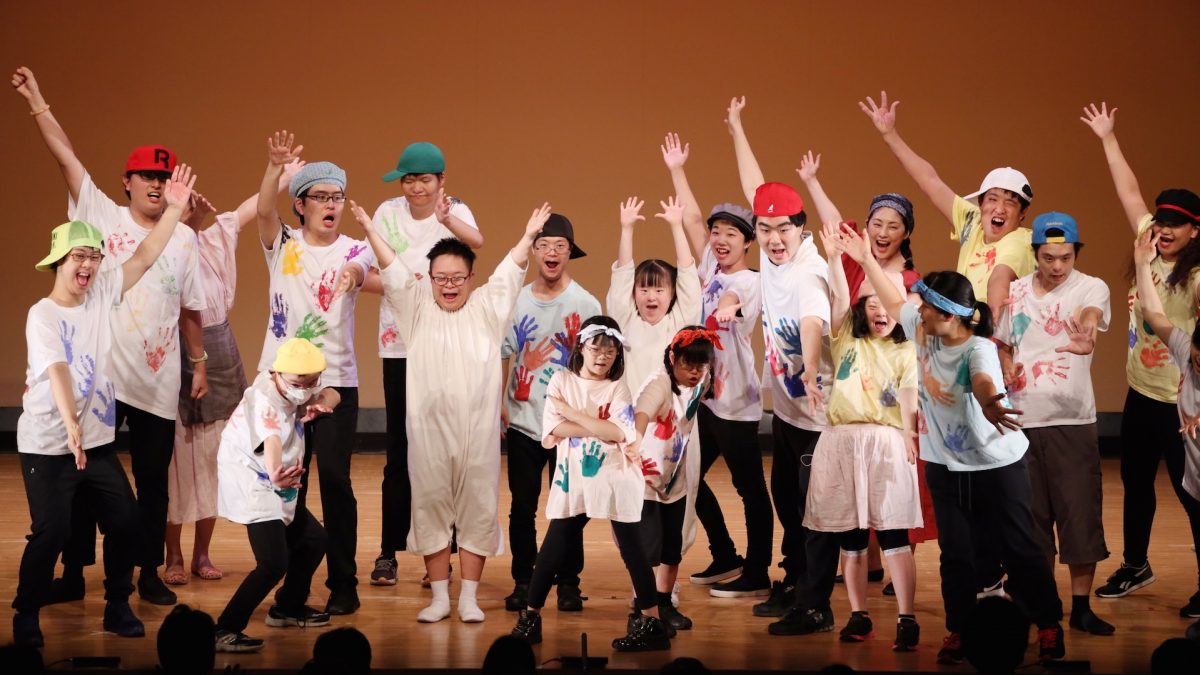
The world of performing arts for people with intellectual disabilities
Tomoko Utsumi (President of NPO Dream Energy Project)
■ Don't let the coronavirus get you down! Online concert
The "Wonderful Encounter Concert" was scheduled to be held on March 21, 2020, World Down Syndrome Day.
The plan was to hold a collaborative concert of piano, vocal, and harp performances by people with Down's syndrome, as well as plays and songs by people with intellectual disabilities, but it was postponed to May due to the spread of the new coronavirus. When that became difficult, there was a proposal to hold it "after autumn," but it was decided to hold it as an online concert.
For someone who is not very good with IT, it was quite a bold challenge for me.
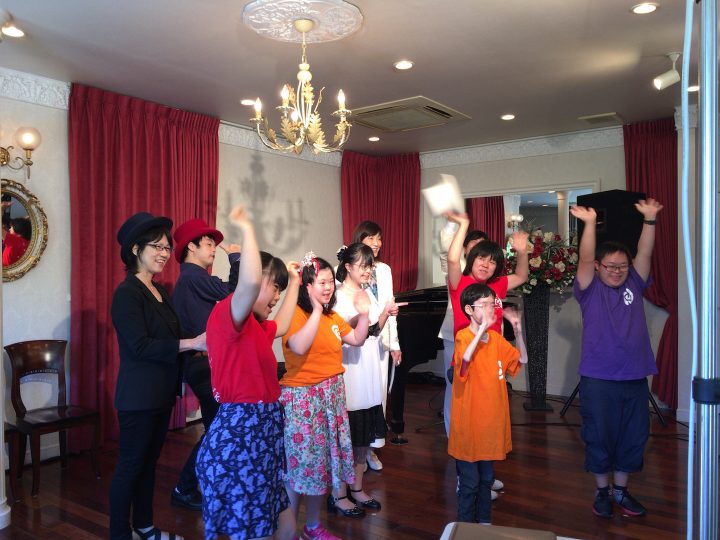
The NPO Dream Energy Project (commonly known as Doripro), of which I am the representative, creates a place for people with intellectual disabilities to learn and experience, and supports "work experience". In addition, as one of the pillars of our activities, we have held plays and concerts for people with intellectual disabilities, but this was the first time we had held an online concert. We had no idea what to do.
I thought about using a paid music distribution site, but it requires an ID and password, and I felt that customers who are not familiar with IT like me would give up halfway through.
I considered "publishing" it on YouTube, but there were some issues.
The worry is that they will become the target of slander online.
It would be a shame for one anonymous and irresponsible comment to discourage their desire to express themselves, given the hard work they have put into their work... Out of concern for this, we have decided to offer a limited free viewing link during October, sending it only to those who request it.
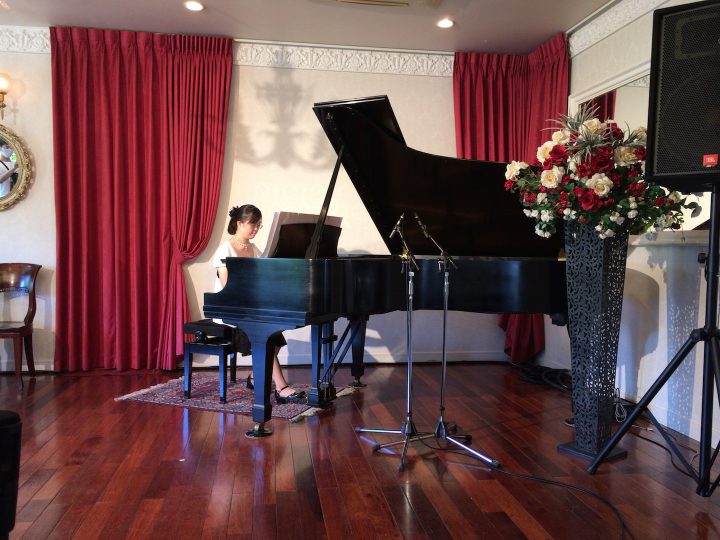
Mayu Shimizu will perform "Sunflower," "Waltz No. 10 in B minor (Chopin)," and "Puppy Waltz."
Program for the "Wonderful Encounter Online Concert"
Part 1: Piano performance by a person with Down's syndrome, solo singing, and guest harp performance
Part 2: Messages from 11 members with intellectual disabilities to those who watched the online concert
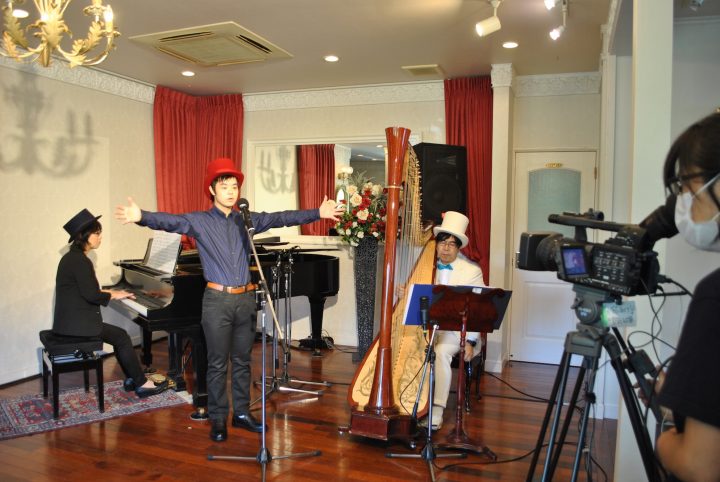
Jungo Utsumi (the author's eldest son) Solo: "Stars on Earth" and "Subaru"
The venue was a French restaurant in Fujisawa City that doubles as a salon concert venue. Originally, the concert was scheduled to include tea and cake, but unfortunately there were no spectators.
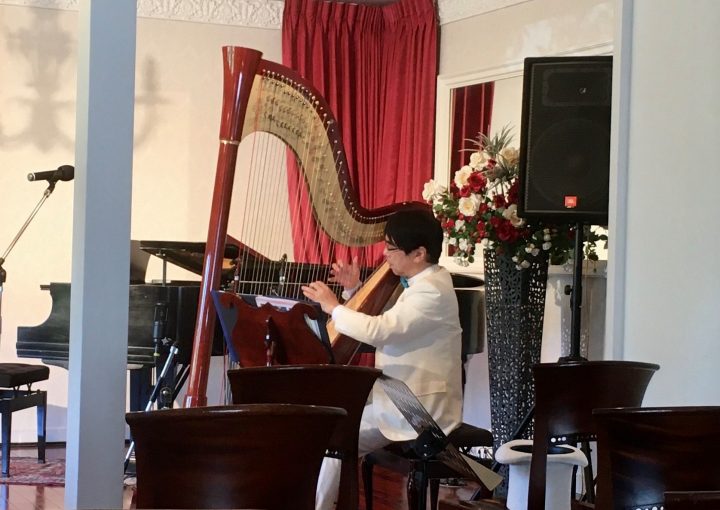
Harp performance by Kenichi Yagi, playing songs "Londonderry Song," "Ruins of the Castle," "Celtic Medley," and "Ebb Tide"
In the second half of the concert, the members of Dream Project shared their special skills and messages one by one. Members who were unable to come to the venue due to concerns about COVID-19 infection were asked to send in recordings of themselves dancing or reciting poems at home, which were then edited.
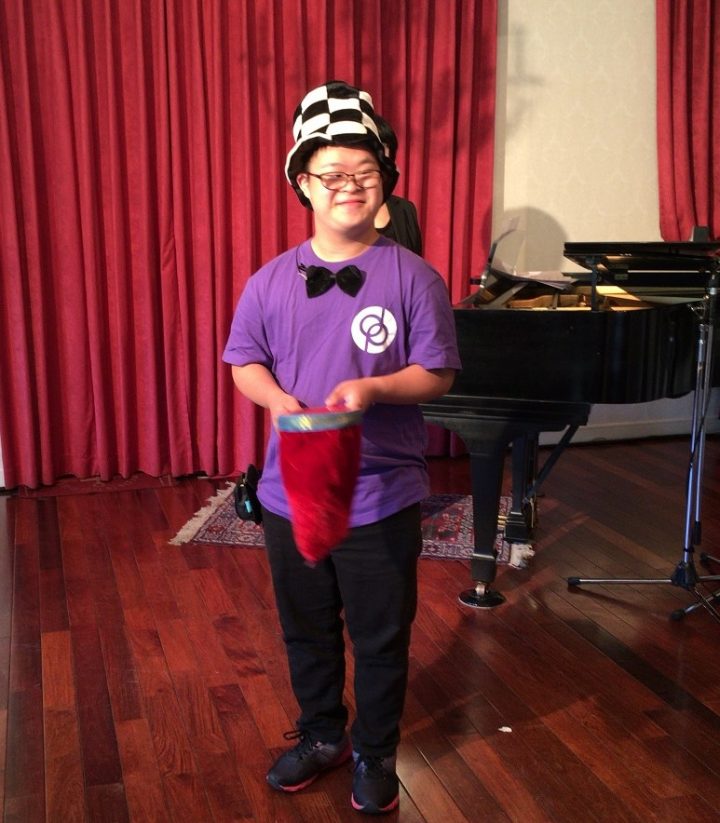
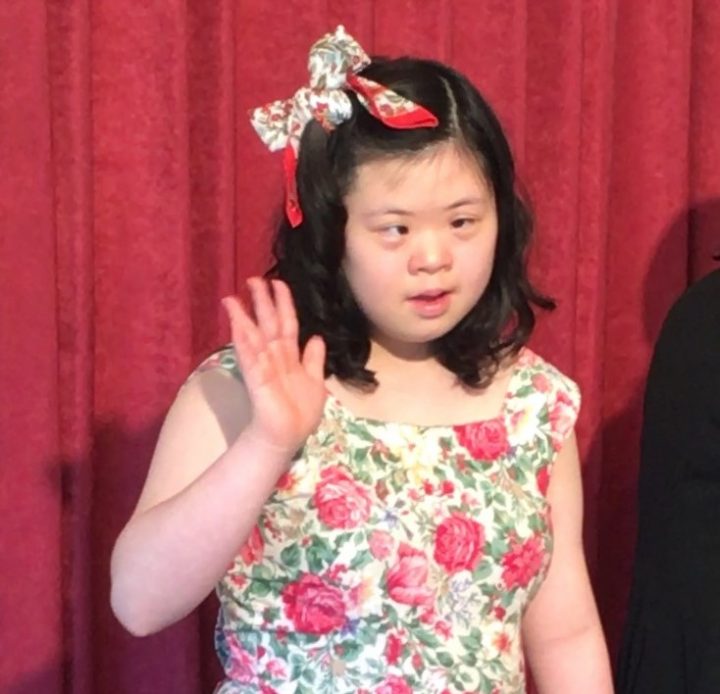
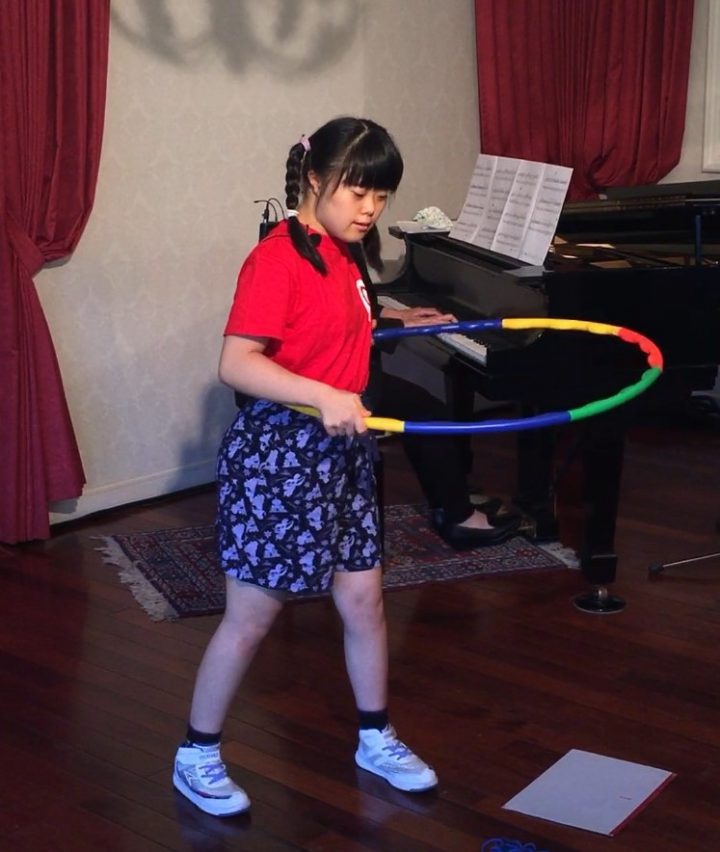
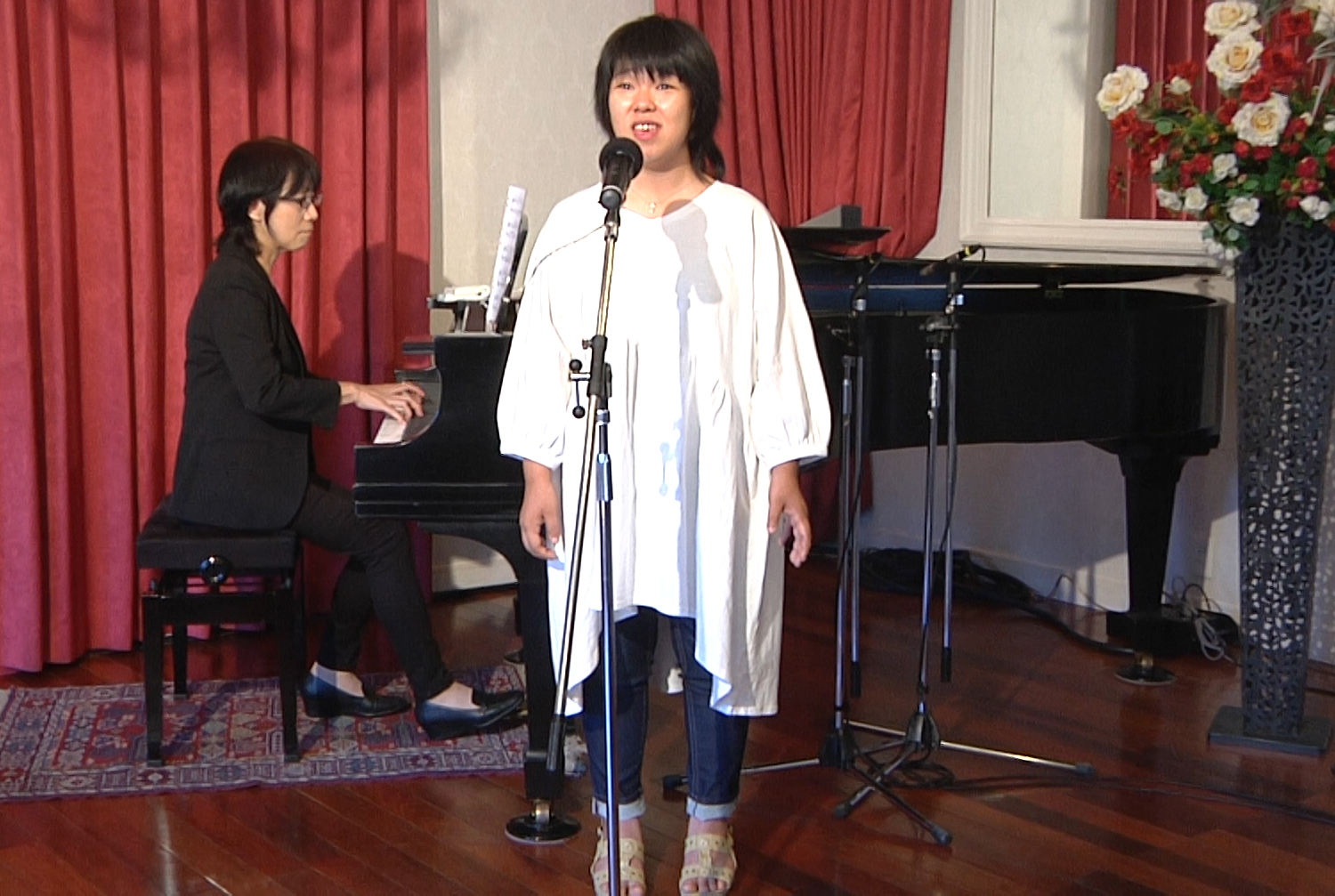
Comments from viewers. (Excerpts)
●I was impressed by the dignified appearance of everyone during the presentation. I felt a clear will to show and convey their message. And that feeling was translated into speaking clearly so that the other person could understand. I felt the importance of having the desire to communicate.
●I enjoyed the performance, seeing each individual's individuality come to the fore. The harp was wonderful, too. I think it's very important to express yourself and have a place to do so. It's difficult to hold events or recitals these days, but I respect the efforts of everyone who came up with creative ways to hold the event.
You can currently watch this concert by visiting Doripro's website .
■Performing arts for people with intellectual disabilities
Theater, music, dance and other performing arts are also called "performing arts." Speaking of performing arts for people with physical disabilities, many people may have been impressed by the dancer with a prosthetic leg who appeared at the closing ceremony of the Rio Paralympics.
However, perhaps not much is still known about performing arts for people with intellectual disabilities.
Art such as paintings and sculptures created by people with intellectual disabilities is known for its unique flavor and beauty.
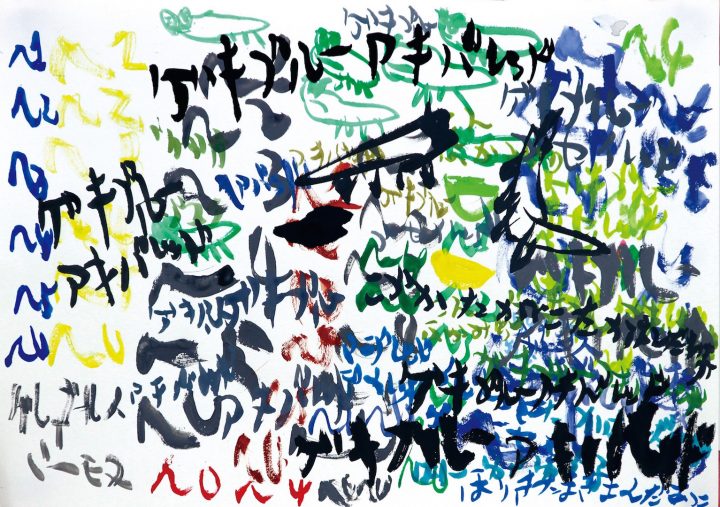
* A painting by Satoshi Nonomura, a member of Art de Vivre, based in Odawara, titled "Crocodile Lizard"
Many people are probably familiar with Shoko Kanazawa, the calligrapher with Down Syndrome who wrote the opening title of the historical drama "Taira no Kiyomori."
In fact, there are several groups, including Dream Project, that bring together people with intellectual disabilities involved in theater, music, and dance.
There are groups that are doing amazing things, getting featured in the media and winning awards overseas, and although it may be presumptuous of me to say this, I would like to say that I want more people to know about their unique performances.
It would be a shame if you don't know about it!
We would like to introduce some of our activities at Dream Project, as well as information about organizations with ties to Kanagawa that are involved in the performing arts, and information about overseas organizations.
■Dream Project's plays and concerts
Since 2012, Dream Project has been holding "inclusion live" events at live music venues in Tokyo, featuring professional musicians and people with intellectual disabilities. In 2016, 2017, and 2019, they held a music and theater stage performance called "The 21st Wonderful Encounter," and in 2018, they held a music event called "Wonderful Encounter Concert" at Yotsuya Civic Hall.
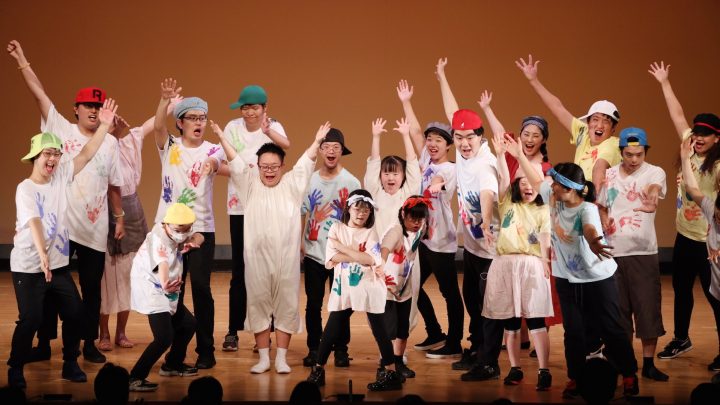
This photo shows a scene from the play "The 21st Wonderful Encounter," which was held at the Kanagawa Prefectural Citizens' Mutual Aid Hall as part of Kanagawa Prefecture's "Coexistence and Co-Creation Project" in August 2019. Most of the performers are young people with intellectual disabilities, such as Down's syndrome or autism.
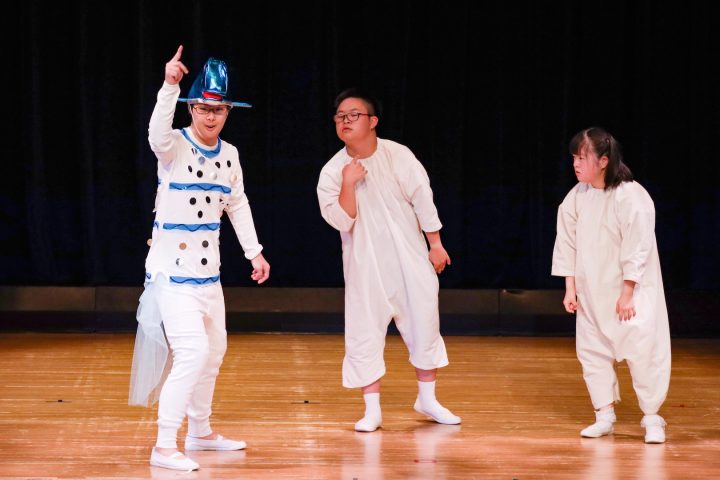
People with Down Syndrome tend to have soft voices and slurred speech, making it difficult to hear what they are saying.
In 2015, when I first started writing a script because I wanted to do a play, I thought it might be difficult for them to actually speak their lines, so in the planning stage I thought of a "narration play" where they would communicate with gestures, hand movements, and facial expressions in sync with the narration. However, as they continued to practice, they became itching to say their lines, and began speaking, ignoring the narration. A child who couldn't lift his head at first started looking straight ahead, and I was able to hear the lines of a child who was muttering incomprehensible words, and before I knew it, each child was energetically speaking their lines and acting on stage.
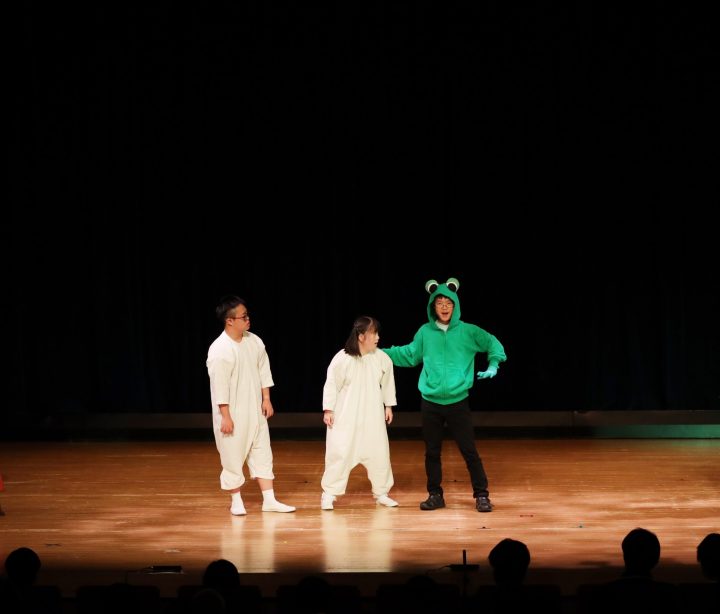
They are intellectually handicapped.
The severity of the symptoms varies from person to person, including a lack of understanding, difficulty concentrating, and difficulty controlling emotions.
A lot of stuff happens during practice and during the actual performance.
It is common for students to "freeze" during practice (a state of not responding, neither moving nor speaking) and enter their own world.
He barricaded himself in the bathroom and refused to come out, he changed his lines to make them easier to pronounce, and before the rehearsal started he lost control of his emotions and hid under a desk in the venue office.
On the morning of the performance, he gets separated from his mother and gets lost in the city, and then he has to rush to the bathroom during the performance and ends up being late for his turn...
There are many things that go wrong, but anyway, I have incredible power when it comes to the things I love.
I am unconditionally honest about things that are fun.
I love expressing myself and it's fun, so I can do my best.
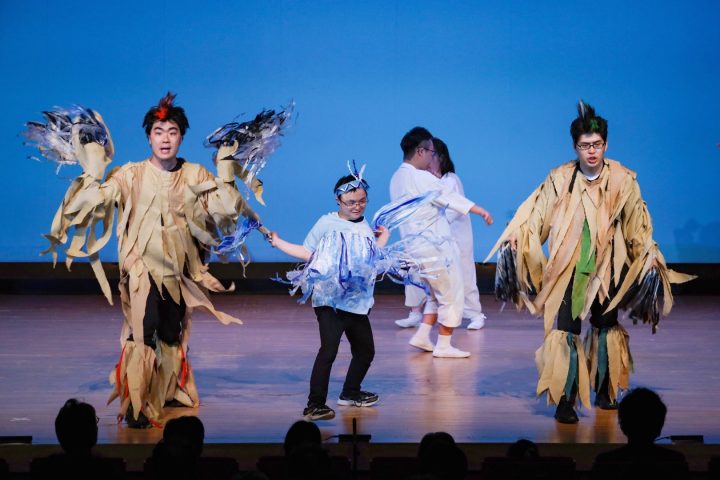
When we think of intellectual disabilities, we tend to imagine them as "there are many things they can't do" or "we don't understand," but sometimes their small comments, gestures, and actions can make us laugh, and conversely, we can think they're amazing.
There isn't much difference between them and us, which makes me wonder, "What exactly is a disability?"
Actor Takako Tokiwa cares deeply for these people and has volunteered to help out.
Many people always fill out the questionnaire at the end of each performance in detail.
Excerpted from a survey conducted at the 2019 performance.
●I was really moved by the fact that everyone was doing what they loved. I often stop performing because I care too much about what other people think, so I was impressed that they were enjoying their performances from the bottom of their hearts.
●The play was filled with the happiness of being born. I believe that you have experienced many hardships, sufferings, and difficulties in the past, but I hope that you will continue to have a kind heart that is considerate and loving towards others. I also gained many realizations from this performance.
●The content makes you think about the meaning of being born. And it's wonderful to see each of the performers' individual personalities as they act so well.
As for concerts, this will be the second online concert mentioned at the beginning, but the first "Wonderful Encounter Concert" held in 2018 was a concert that mainly featured a collaboration between performers with Down Syndrome and performers with autism.
It was very interesting to see how the differences in disabilities gave rise to unique musical compositions.
The performers with Down's syndrome were kind and gentle, and this was apparent in their performances. On top of that, they each brought with them the difficulties that come with the disabilities they each have.
Toshiki has a pacemaker in his heart, Hayato is deaf in his left ear, and Rintaro was born missing the tip of his right wrist, so they play melodies using five fingers on their left hand and six fingers on their right wrist.
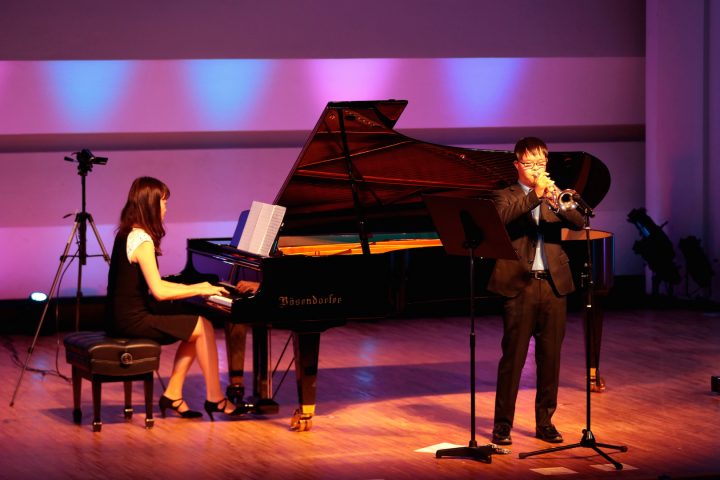
Trumpet performance by TOSHIKI
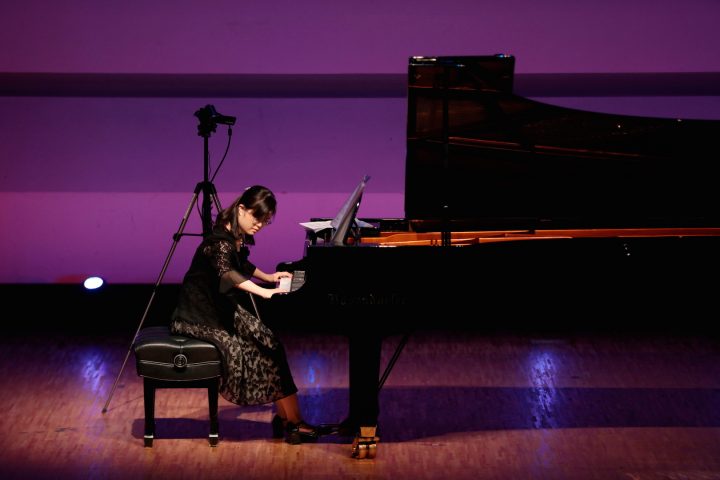
Piano performance: Mayu Shimizu
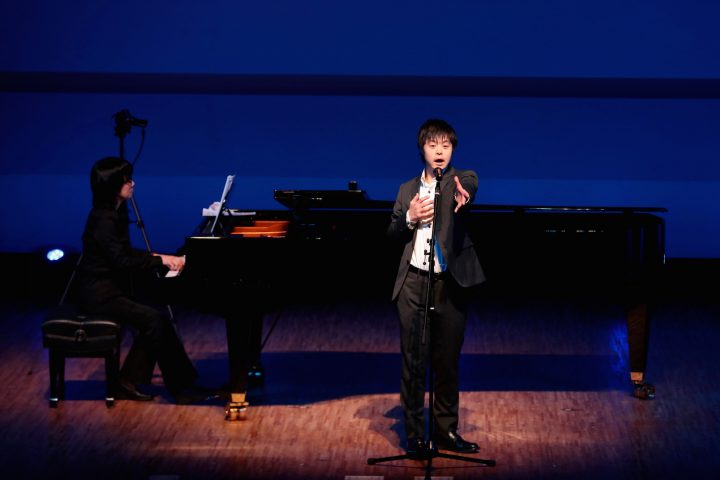
Soloist: Jungo Utsumi
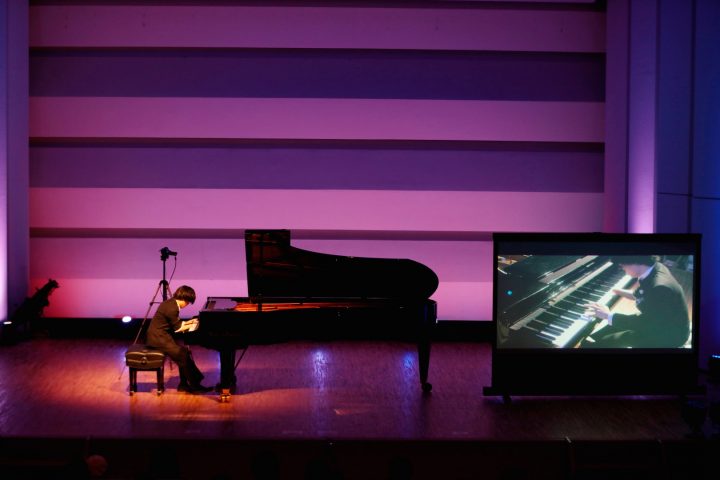
Piano performance by Rintaro Suzuki
On the other hand, the performers with autism all said that when they were young they were hyperactive, restless, and had strong obsessions, and had difficulty learning the rules of everyday life.
However, thanks to her mother's realization that "she was only quiet when listening to music" and the creation of an environment for her, her talent blossomed. She has an outstanding ability to concentrate on her favorite music, and her playing and singing are full of passion and dynamic momentum.
Take piano performances, for example. The piano playing of Mayu and Rintaro, who have Down's syndrome, is gentle and full of emotion, whereas Takuto, who has autism, plays with a sense of rhythm that bounces off of his fingers as if they are dancing joyfully across the keys, and it feels dynamic and like an ensemble that resonates deep in the heart.
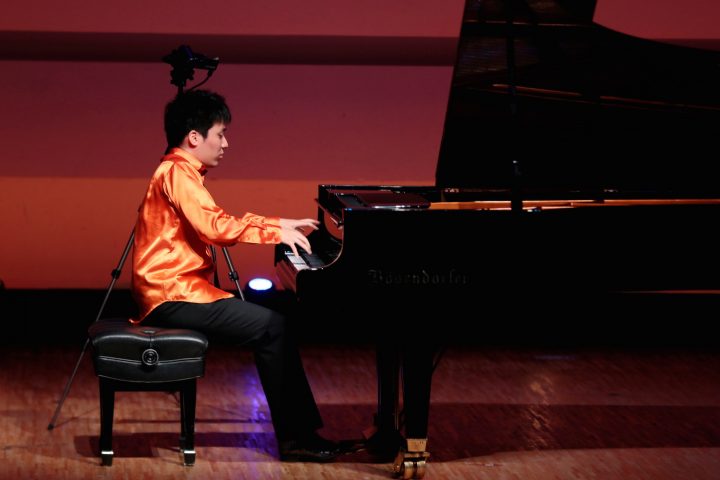
Piano performance by Takuto Koyanagi
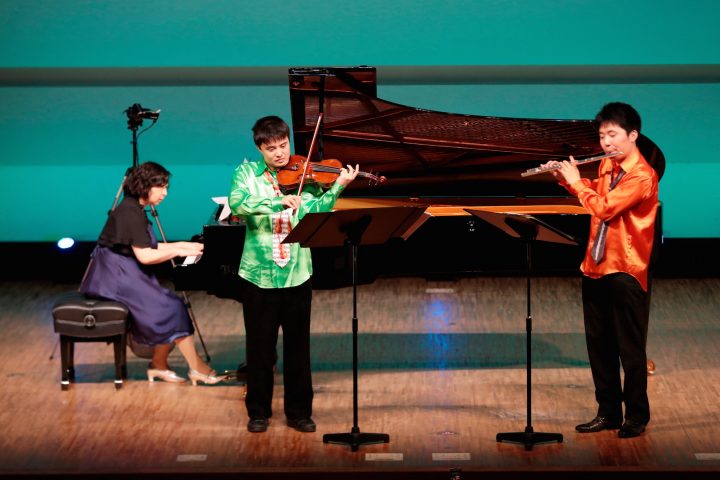
Violinist: Tadahiko Homma Flute: Takuto Koyanagi
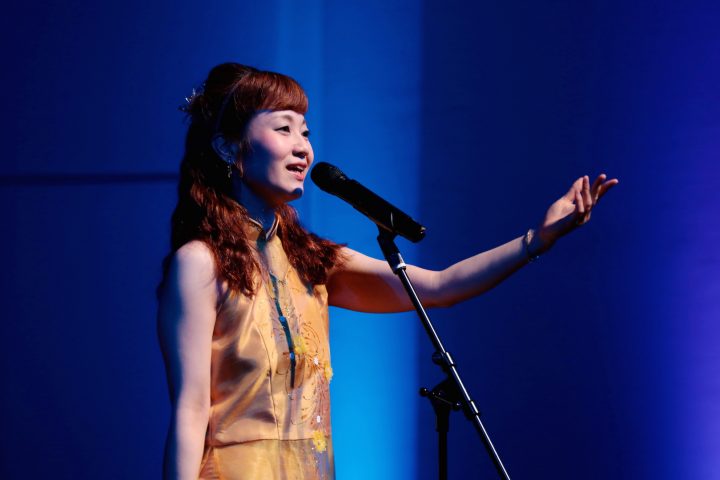
Soloist: Tae Kamiya
There was a tremendous response at the concert.
There was loud, endless applause, people in tears, and many surveys saying they were "moved."
However, due to his intellectual handicap, his rhythm and tempo can sometimes be less stable than other people.
I can't even flatter myself by saying that Shungo is "good." He always ends up playing off-key.
So what did the audience applaud?
Someone told me, "Perhaps because you're not trying to make it look good, it speaks directly to your heart."
It's true that since it's difficult for everyone to express themselves in words, they put their true selves into their songs and vocals.
It may take an immeasurable amount of time to master a song, and they may not be good at achieving perfection, but their passion outweighs all of that.
There is an honesty to show one's true self to the fullest, without any pretense or bargaining.
There is an overflowing dedication.
I think that will move the hearts of those who listen.
Strength in weakness...
We tend to say "turn a negative into a positive," but the efforts that have been made despite various difficulties, and the path that has been walked without giving up, are apparent in performances such as musical instruments and singing. The same can be said for theater and dance.
I think that is one of the attractions of performing arts for people with intellectual disabilities.
Singer Mizukoshi Keiko, who came to watch the concert, wrote the following on her blog:
"There was piano, violin, trumpet, flute and solo singing. Each and every performance and song reached the very depths of my heart and I found myself tearing up halfway through...Everyone made each song their own and, as an artist, they presented it to us with their bare hearts...I too felt many things as a mother, as a musician and as a person, and I also felt the important origins of everything. It was a precious time for me."
■ Groups involved in performing arts related to Kanagawa
[Love Junks]
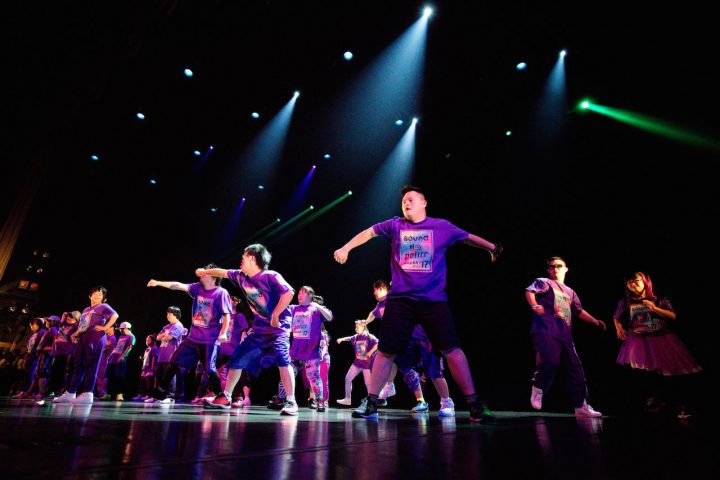 The presentations are always full of enthusiasm
The presentations are always full of enthusiasmLove Junks is an entertainment school for people with Down Syndrome.
The organization has schools in Kanto, Kansai, and Hokkaido, with a total of 800 members.
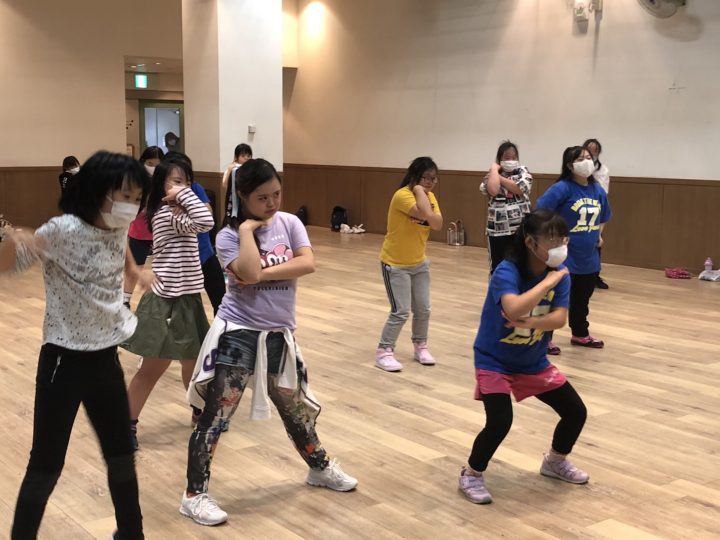
Love Junks Kanagawa School students taking lessons at Yokohama Rapport
"I feel that people with Down Syndrome are exceptional at expressing their feelings directly," says Anna Makino, the group's founder. In 2002, she was asked by the Japan Down Syndrome Association to teach dance to children with Down Syndrome. She was fascinated by their ability to attract people and their high level of sensitivity, and so she founded Lovejansk.
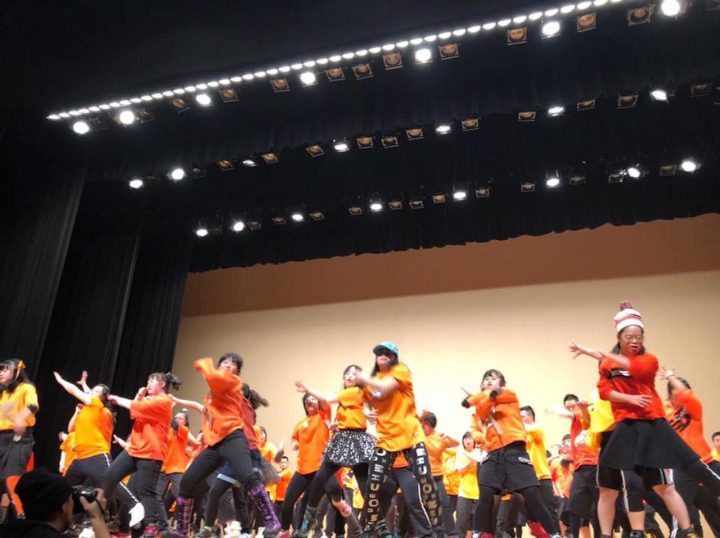
26 years ago when my child was born, people with Down's syndrome rarely appeared on TV. The activities of Love Junks, who appear on TV and at events all over the country, have not only encouraged parents raising children with Down's syndrome, but have also become a major presence in informing people who do not know about Down's syndrome about its hidden power. Anna, who teaches and choreographs professional dancers, has powerful words when she talks about the appeal of the dance of children with Down's syndrome.
"The sight of them enjoying dancing to the fullest touches people's hearts and reminds them of their roots."
[Hot Generation]
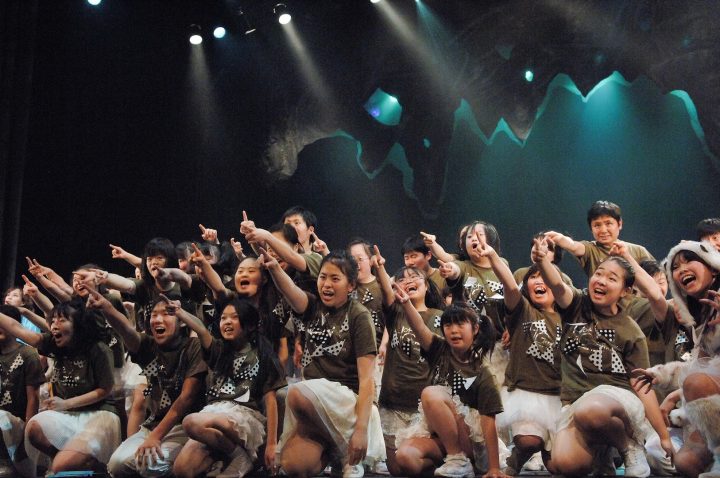
Hot Generation performs original musical works three times a year with professional musical actors, regardless of whether they have a disability or not.
The group's leader, Torii Meiko, says of the members who have intellectual disabilities, "Their performances, brimming with kindness and beauty and spun by their pure and innocent souls, provide the ultimate healing and courage."
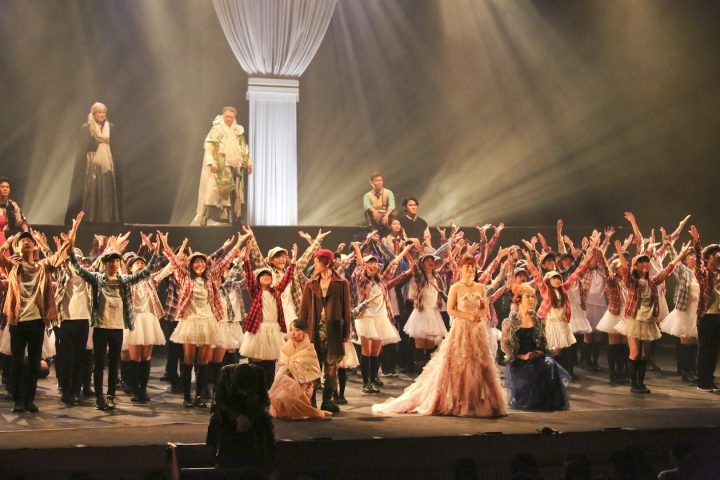
Tae Kamiya (siting in the front row on stage), who has autism and plays leading roles in many of the productions, has a singing voice that sounds as if it had descended from heaven.
Torii, who has been coaching Tae since she was in high school, says:
"There are times when I am not emotionally stable when I practice, but it is important to always believe in the potential of my opponent."
It is precisely because of the invisible struggles that Tae faces that she shines on stage with a dignified presence that makes her disability seem impossible to notice.
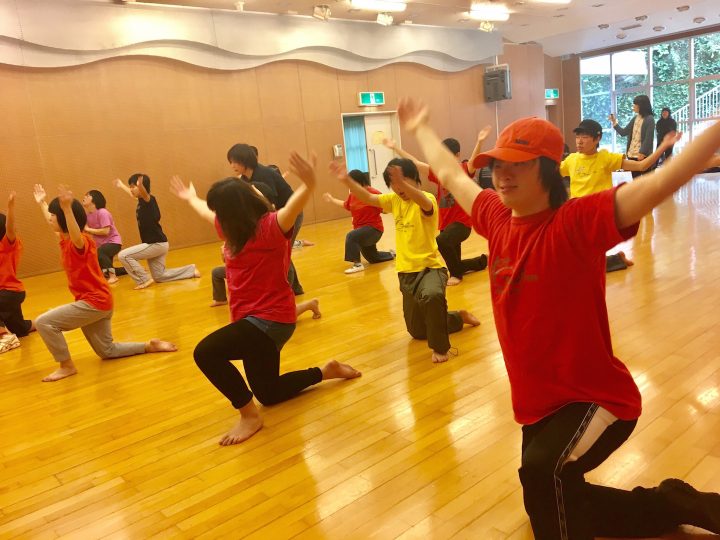
Hot Generation Kanagawa School members practicing at Shonandai Cultural Center
I had a connection with Hot Generation, and about 20 years ago I asked Torii to open a branch in Kanagawa, so we established the Kanagawa school. Together with our fellow families of children with disabilities, we worked to create a place where children could smile.
I graduated seven years ago to found Dorepro, but I believe that the activity of inclusion itself, regardless of whether or not one has a disability, is very meaningful.
[Salsa Packing Tape]
Salsa Gum Tape is a rock band formed by musician Kashiwa Tetsu and made up of people with intellectual disabilities.
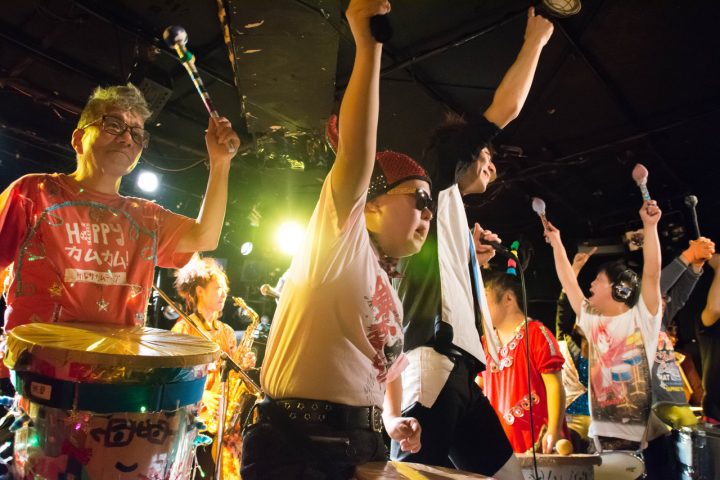
It has been 26 years since we started working at welfare facilities in the prefecture.
The energy with which people with intellectual disabilities sing, play instruments, and get excited as entertainers is incredible.
In the "Wonderful World" that Kashiwa created in response to the Tsukui Yamayuri En incident, anger and hope are swirling and exploding.
In January of this year, members of Dream Project were invited to the Salsa Gum Tape live show, and they sang this song together. The stage and the audience became one, and it was a huge chorus.
"I was born to be happy! I love being alive!"
The sight of the members with intellectual disabilities screaming from the bottom of their hearts must have left a deep impression on everyone in the venue.
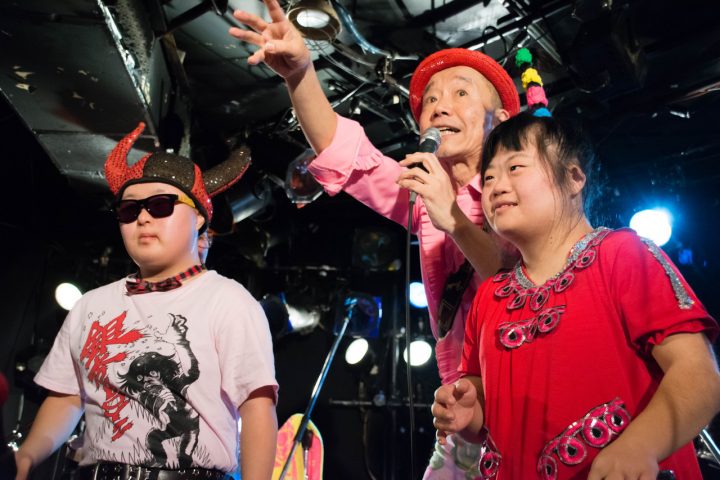
Kashiwa Tsutomu (behind) is now over 70 years old, but his creative energy shows no signs of slowing down.
All live performances were cancelled due to the COVID-19 pandemic. However, they performed live for the first time in a while at an online event without an audience held in November.
Kashiwa also wrote a new song, "I Want to Meet You!", hoping to connect the hearts of people who can't meet due to the coronavirus pandemic.
"We play rock and roll every day because it's just so much fun. And if that fun spreads to someone else and we can share it, it becomes even more fun. It's the most peaceful sharing in the world!"
Or rather, as Shiwa-san said in his message, the rock and roll spirit of surviving any situation is alive and well.
All of these places put on powerful performances that break down the sense of stagnation in society, but of course there are many other places that are also active with conviction.
■ Information from overseas
Finally, a little bit of information from overseas.
Although it is slightly different from the performing arts field, overseas, many people with Down Syndrome have been active in television and film for over 20 years.
In 1996, Pascal Duquesne, an actor with Down's syndrome, was cast as one of the two leading actors in the film "The Eighth Day," and achieved the remarkable feat of winning the Best Actor Award at the Cannes Film Festival.
This film was released in Japan in 1997, and it gave me the courage to raise my own child with Down Syndrome.
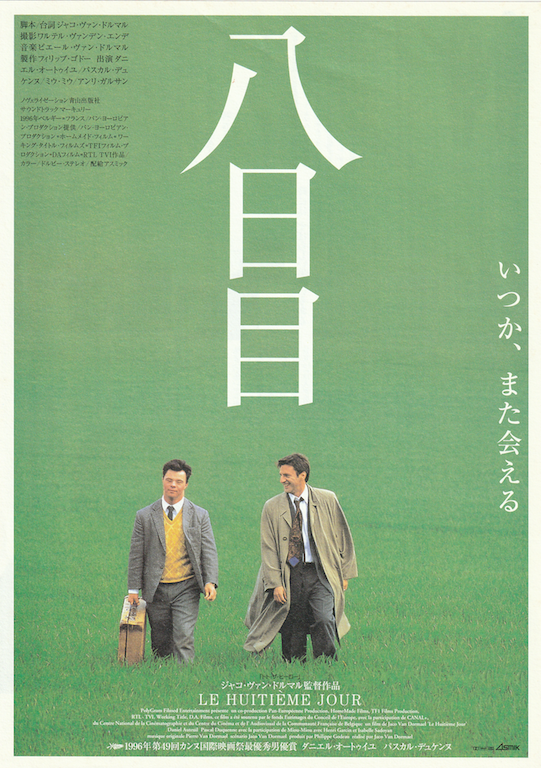
Lauren Potter, who has Down's syndrome, plays Becky in the hit US TV drama "Glee." Some of you may already know it, as it was broadcast on NHK Educational TV in 2012, but it is a youth drama with singing and dancing set in a rural high school, where underachieving high school students get into trouble. Becky appears as a member of the cheerleading team. Her classmates and teachers accept her as normal, even though she has Down's syndrome. I was as amazed and admired the American culture, where people are not treated specially, but are treated naturally as classmates and fellow students, as much as I was impressed by her acting, which is as good as any other actor.
* Reference: TV drama "Glee" trailer
And now, the movie "The Chocolate Donut" is getting a lot of attention. It was released in 2014 and moved viewers to tears by the story of Rudy and Paul, who fight against social prejudice while trying to live their own lives. Isaac Leiva, who plays Marco in this movie, is also an actor with Down's syndrome.
*Reference: Trailer for the movie "Chocolate Donut"
In December 2020, a play called "Chocolate Donut" directed by Amon Miyamoto and starring Noriyuki Higashiyama will be performed in Japan. A boy with Down's syndrome plays the role of Marco.
The fact that there are many people with intellectual disabilities appearing on television and in movies overseas is likely due in large part to the fact that there are theater training schools and production companies. In Los Angeles, there is an entertainment production company for people with intellectual disabilities, and I have had the opportunity to visit it. Many people with intellectual disabilities have appeared on television and in movies through it. In the 300th episode of "ER," a popular medical drama in Japan, an actor with Down's syndrome appeared in the important role of Peter Fonda's son.
Furthermore, women with Down Syndrome are active as models overseas.
In June 2020, Gucci, a luxury brand that leads the global fashion industry, appointed British model Ellie Goldstein as the model for their advertisement in the Italian edition of Vogue.
In October, the global skincare brand Obagi announced that Grace Stroebel would be a model.
In the past few years, many women with Down's syndrome have appeared on major stages as models. This shows that the world is moving towards "beauty that values diversity and is unique to each individual."
In Japan, former Paris Fashion Week model Mariko Takagi is working to train models with intellectual disabilities. The day when a model with Down's syndrome will make an appearance on the world stage from Japan may not be so far away.
■Finally
After seeing the movie "The Eighth Day," she became interested in Down syndrome and theater, and for over 20 years she has believed in the potential of people with intellectual disabilities in acting, singing, and dancing, and has been working on this cause.
There are many other people out there who are doing wonderful work, so this article may seem presumptuous, but I continued writing in the hope that I could get as many people as possible interested in their performances.
In preparation for next year's Olympic and Paralympic Games, and as a legacy of the games, I hope that performing arts for people with disabilities, not just those with intellectual disabilities, will take root in Japan.
"I want to see their performance."
"Because it's fun to have unique personalities."
"Because it's fun."
It is my sincere hope that, motivated by such factors, an increasing number of ordinary people will want to attend plays, concerts, and dance shows performed by people with intellectual disabilities, and that we will be able to create a society in which these venues are fully booked.

